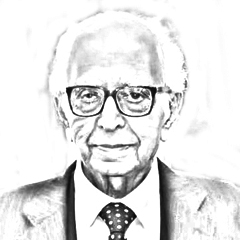The American myth of a unipolar world has started to crumble, as China comes out from the shadows and Russia gathers strength under the leadership of President Vladimir Putin. Afghanistan turned out to be a military and strategic quagmire for America and her allies. Elsewhere, the US failed to pressure Iran following the Houthi attacks on Saudi Aramco facilities in Jubail and Jeddah.
Covid-19 likely played a part in all this. Washington had hoped that the virus would remain limited to China, or its neighbouring countries. However, the US and its allies suffered the most, while Beijing quickly gained control of the situation; despite it being labelled the “Wuhan virus” by the US, India and many others in the American camp.
A new Cold War is in the offing. India has long sponsored terrorism in Pakistan, infiltrated Afghanistan’s NDS (National Directorate of Security), and more recently revoked Kashmir’s special constitutional status. Thus, this region is going to remain centre-stage for the foreseeable future. Only one question remains: does an international rules-based order exist in any form?
Pakistan, meanwhile, supports regional peace and stands with Afghanistan in the fight against terrorism. Islamabad welcomed the 3-day ceasefire announced by Taliban on the eve of Eid-ul-Fitr while strongly condemning terrorist incidents in Kabul and other areas of the country that targeted both Afghan security forces and civilians. Nevertheless, Pakistan is the main facilitator of the Afghan peace process and holds the key to regional peace.
The world must stand as one to halt Israeli aggression. Defending Palestinian human rights needs to translate into a collective and global vocation. For justice, equity and freedom can no longer be the negotiable rights of a selective few
More than 300 people were hurt as violence unfolded at occupied East Jerusalem’s Al-Aqsa Mosque compound, Islam’s third-holiest site which also hold religious significance for the Jews as Temple Mount. The question of illegal Israeli occupation of Palestinian territory bears similarities to India’s illegal occupation of Jammu and Kashmir. Both the Palestinians and the Kashmiris are still struggling for their respective right to self-determination in accordance with United Nations resolutions.
Egypt, along with the Arab League and the Middle East quartet – the US, Russia, the EU and UN – expressed concern over the unrest. Pakistan Prime Minister Imran Khan also condemned the Israeli police raid on Al-Aqsa mosque during Ramzan while Muslims were praying. The ensuing violence has killed more than 200 Palestinians, 61 of whom were children, and wounded 1,500. Israel has reported 10 dead in the past week, including two children.
Pakistan strongly condemned Israeli violence with the Foreign Office spokesperson terming it yet another reprehensible action during the holy month of Ramzan, following the increased restrictions on the fundamental freedoms of Palestinians. The spokesperson reiterated Pakistan’s support for a viable and independent Palestinian state on the basis of internationally agreed borders.
The UN has warned that the conflict could turn into “full-scale war”. The world must stand as one to halt Israeli aggression. Defending Palestinian human rights needs to translate into a collective and global vocation. For justice, equity and freedom can no longer be the negotiable rights of a selective few.
The writer is former Director National Institute of Public Administration (NIPA) Government of Pakistan, a political analyst, and public policy expert,. He is also author of the books, 9/11 Pakistan and Existential Question for Pakistan
